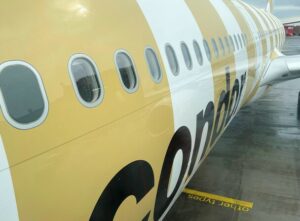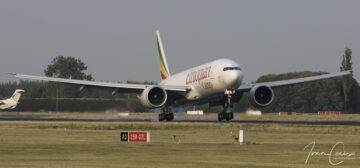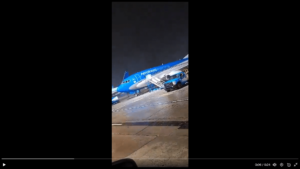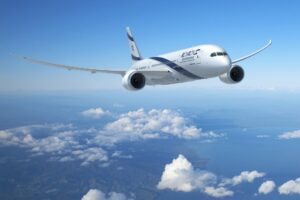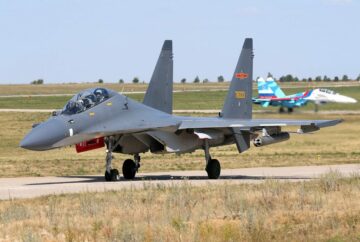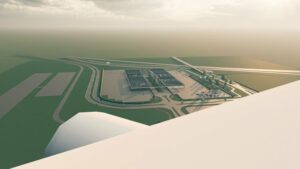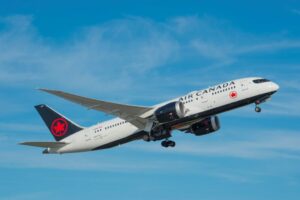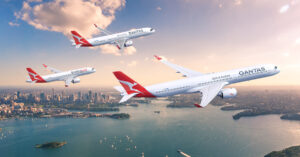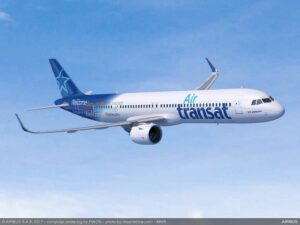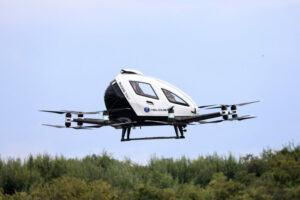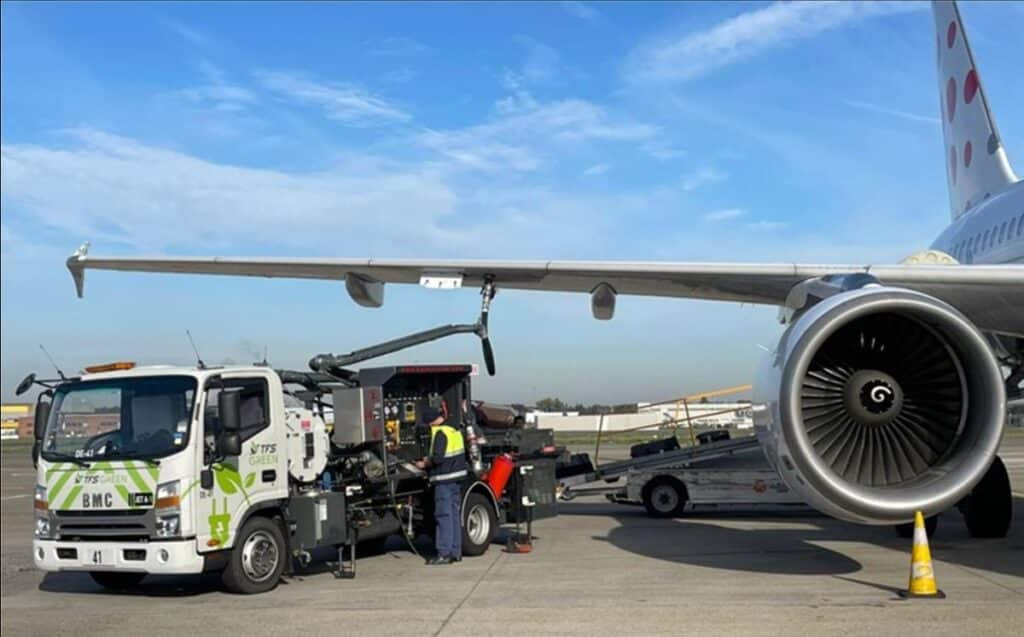
Brussels Airport is driving the adoption of sustainable aviation fuel (SAF) with the backing of federal government support. Despite the high cost of SAF hindering its widespread use among airlines, the airport is initiating a financial incentive programme, enabled by government support, to promote SAF utilisation. This incentive, available to all airlines departing from Brussels Airport in 2024, aims to mitigate the extra expense associated with SAF and facilitate its incorporation into flights.
Recognised as a pivotal solution for achieving carbon-neutral flying by 2050, SAF is currently the most viable means to significantly reduce CO2 emissions in the aviation industry. Its blend with regular fuel allows aircraft to operate while curbing emissions. However, due to higher production costs and investment in refineries, SAF remains notably more expensive than conventional fuel. Despite this, airlines express a keen interest in transitioning to SAF.
Prioritising the advancement of SAF usage, Brussels Airport is utilising a portion of the two million euro subsidy allocated by the federal government to implement sustainable aviation industry projects. The successful proposal for the SAF incentive programme has gained government approval.
Georges Gilkinet, Minister of Mobility, emphasises the necessity of leveraging all available tools to expedite the aviation sector’s eco-friendly transformation. The SAF incentive programme aims to stimulate a shift from fossil fuel to SAF, aligning with broader initiatives to reduce the carbon footprint of flights departing from Belgium’s national airport.
The incentive will be accessible to all airlines operating passenger and cargo flights, both short-haul and long-haul, departing from Brussels Airport in 2024. It offers a maximum of 200,000 euros per airline, covering up to 80% of the additional cost incurred by adopting SAF.
Arnaud Feist, CEO of Brussels Airport Company, underscores the SAF incentive’s significance in the industry’s endeavour to achieve zero CO2 emissions by 2050: “The SAF incentive programme is one of the measures that Brussels Airport Company wanted to take to accelerate the sustainable development of aviation and promote the use of sustainable aviation fuels. We are happy that the federal government has accepted our proposal for a SAF incentive.” This programme aligns with the airport’s European Stargate programme, aiming for 5% SAF usage in total kerosene consumption by 2026 at Brussels Airport, demonstrating commitment alongside airline partners.
- SEO Powered Content & PR Distribution. Get Amplified Today.
- PlatoData.Network Vertical Generative Ai. Empower Yourself. Access Here.
- PlatoAiStream. Web3 Intelligence. Knowledge Amplified. Access Here.
- PlatoESG. Carbon, CleanTech, Energy, Environment, Solar, Waste Management. Access Here.
- PlatoHealth. Biotech and Clinical Trials Intelligence. Access Here.
- Source: https://www.aviation24.be/airports/brussels-airport-bru/brussels-airport-encourages-the-use-of-sustainable-aviation-fuel-saf-thanks-to-federal-government-support/
- :has
- :is
- $UP
- 000
- 200
- 2024
- 2026
- 2050
- a
- accelerate
- accepted
- accessible
- Achieve
- achieving
- Additional
- Adopting
- Adoption
- advancement
- Aiming
- aims
- aircraft
- airline
- Airlines
- airport
- aligning
- Aligns
- All
- allocated
- allows
- alongside
- among
- and
- approval
- ARE
- AS
- associated
- At
- available
- Available to all
- aviation
- Aviation24
- backing
- BE
- Blend
- both
- broader
- Brussels
- by
- carbon
- carbon footprint
- Carbon-neutral
- Cargo
- ceo
- co2
- co2 emissions
- commitment
- company
- consumption
- conventional
- Cost
- Costs
- covering
- curbing
- Currently
- demonstrating
- Despite
- Development
- driving
- due
- Eco-friendly
- Emissions
- enabled
- encourages
- Euro
- European
- Euros
- expedite
- expensive
- express
- extra
- facilitate
- Federal
- Federal government
- financial
- Flights
- flying
- Footprint
- For
- fossil
- Fossil fuel
- from
- Fuel
- fuels
- gained
- Government
- government support
- happy
- High
- higher
- However
- HTTPS
- implement
- in
- Incentive
- incurred
- industry
- industry’s
- initiating
- initiatives
- interest
- into
- investment
- IT
- ITS
- jpg
- Keen
- leveraging
- max-width
- maximum
- means
- measures
- million
- minister
- Mitigate
- mobility
- more
- most
- National
- necessity
- notably
- of
- Offers
- ONE
- operate
- operating
- our
- partners
- per
- pivotal
- plato
- Plato Data Intelligence
- PlatoData
- portion
- Production
- programme
- projects
- promote
- proposal
- reduce
- regular
- remains
- shift
- significance
- significantly
- solution
- Stargate
- stimulate
- subsidy
- successful
- support
- sustainable
- sustainable aviation fuel
- Sustainable Development
- Take
- than
- thanks
- that
- The
- this
- to
- tools
- Total
- Transformation
- transitioning
- two
- underscores
- Usage
- use
- utilisation
- viable
- wanted
- we
- while
- widespread
- will
- with
- zephyrnet
- zero

